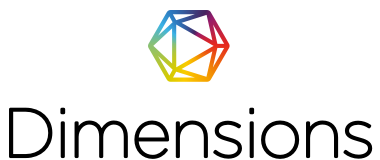Value Driven Growth Mindset and Value Driven Fixed Mindset?
Abstract
This article explores the integration of growth and fixed mindsets with ethical considerations and primal instincts, offering a fresh perspective on understanding human behaviour, especially in studying organizational behaviour. The motivation behind this exploration is to extend Carol Dweck's mindset theory by incorporating moral and instinctual dimensions, addressing a gap in how these mindsets intersect with ethical decision making that motivated behaviour in organization. The primary method involves constructing a 2x2 matrix that categorizes individuals based on their mindset (growth or fixed) and their tendency to either uphold ethical and moral principles or succumb to primal brain stem impulses. This matrix serves as a tool to elucidate the complex interaction between cognitive orientations and ethical or instinctual drives. For the organizational behaviour, these comprehensive framework, highlights the nuanced relationship between mindset typologies and ethical or primal inclinations, proposing that behaviour is a product of this multifaceted interaction in the interaction of individual in organization. The article concludes with insights on how this integrated approach can enhance our understanding of human actions and decision-making processes.
Keywords
Full Text:
PDFReferences
Anitha, J. (2014). Determinants of Employee Engagement and Their Impact on Employee Performance. International Journal of Productivity and Performance Management. https://doi.org/10.1108/ijppm-01-2013-0008
Benedict, R. (1946). The Chrysanthemum and the Sword. Houghton Mifflin Company.
Dweck, C. S., & Leggett, E. L. (1988). A Social-Cognitive Approach to Motivation and Personality. Psychological Review. https://doi.org/10.1037/0033-295x.95.2.256
Dweck, Caroline. S. (2007). Mindset. Ballantine Books.
Howell, A. J. (2016). Implicit Theories of Personal and Social Attributes: Fundamental Mindsets for a Science of Wellbeing. International Journal of Wellbeing. https://doi.org/10.5502/ijw.v6i3.529
Katz-Buonincontro, J., Hass, R. W., Kettler, T., Tang, L. M., & Hu, W. (2020). Partial Measurement Invariance of Beliefs About Teaching for Creativity Across U.S. And Chinese Educators. British Journal of Educational Psychology. https://doi.org/10.1111/bjep.12379
Koentjaraningrat. (1969). Rintangan2 Mental Dalam Pembangunan Ekonomi di Indonesia: Vol. Seri No 1/2 (Terbitan Tak Berkala). Bhratara.
Rodriguez, S., & Lieber, H. (2020). Relationship Between Entrepreneurship Education, Entrepreneurial Mindset, and Career Readiness in Secondary Students. Journal of Experiential Education. https://doi.org/10.1177/1053825920919462
Sagan, C., & Druyan, A. (1992). Shadows of Forgotten Ancestors. Ballantine Books .
Turetsky, K. M., Curley, J. P., Carter, A. B., & Purdie-Greenaway, V. (2022). Explaining the Gender Gap in Negotiation Performance: Social Network Ties Outweigh Internal Barriers. Journal of Social Issues. https://doi.org/10.1111/josi.12536
DOI: https://doi.org/10.21776/ub.apmba.2023.012.02.1
Refbacks
- There are currently no refbacks.

This work is licensed under a Creative Commons Attribution-NonCommercial 4.0 International License.












